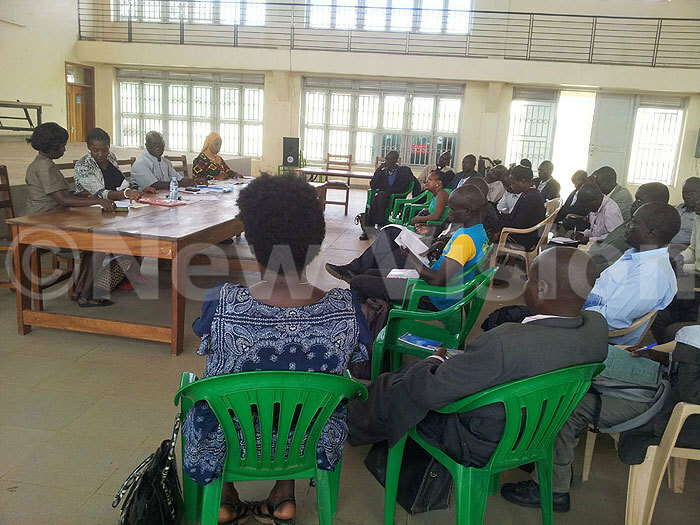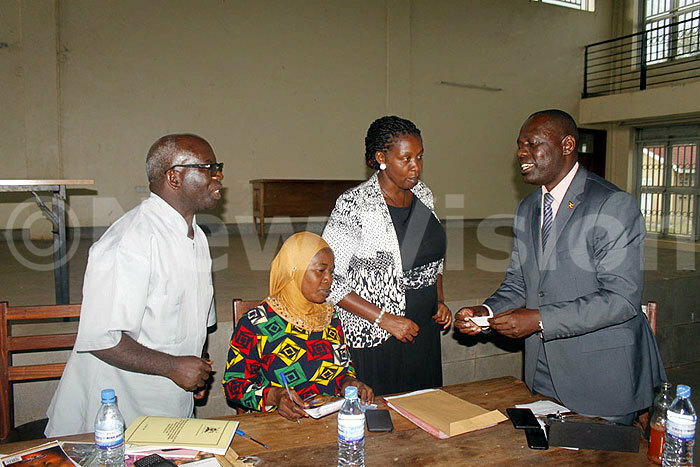Schools urged on mother tongue instruction
“Teaching a child in their mother tongue is very important."
The assistant commissioner for primary education Dr Tony Mukasa Lusambu has warned schools against resisting teaching in local languages in early years of schooling arguing that the use of English as a method of instruction perpetuates passive learning.
Addressing head teachers and teachers from different schools in Amuru district at the weekend, Lusambu revealed that his office had received reports that schools are going against the ministry of educations policy of using mother tongue as a medium of instruction from primary one to primary three.
“When learners start school in (English), a language that is still new to them, it makes learning teacher-centered and reinforces passiveness and silence in classrooms, which in turn suppresses young learners’ potential and liberty to expresses themselves freely,” Lusambu said.

“In the long run, leaners can become dull and their eagerness and creativity are hindered making learning experience unpleasant, in the end creating a negative effect on learning outcomes.
“Teaching a child in their mother tongue is very important. Even in English, the person has to first internalize something in their local language and then air out in English,” he argued.
The commissioner said learning in local language in the early years helps the child to develop basic literacy skills through reading, writing and arithmetic.
“The skills of reading and writing come down to the ability to associate the sounds of a language with the letters or symbols used in the written form. These skills build on the foundational and interactional skills of speaking and listening,” Lusambu explains.
A number of head teachers said that they had tried so much to see that teachers teach in local language but were facing resistance from parents who claim that their children have to read in English because it is the main mode of communication.
At the same event, Stellah Keihangwe the Executive Director Literacy and Adult Basic Education (LABE), said learners taught in the language they speak or understand develop reading and writing skills faster and in a more meaningful way. Keihangwe also disclosed that research has shown that skills and concepts taught in the learners’ home language do not have to be re-taught when they transfer to a second language.
“The learner already knows that letters represent sounds, the only new learning he or she needs is how the new language ‘sounds’ its letters. In the same way, learners automatically transfer knowledge acquired in one language to another language as soon as they have learned sufficient vocabulary in the new language,” she stressed.

Kilak South MP Gilbert Olanya (right) chats with Stellah Keihangwe, the executive director of Literacy and Adult Basic Education and the assistant commissioner for primary education Dr Tony Mukasa Lusambu after the meeting. (Credit: Andrew Masinde)
LABE is a local non-Governmental Organisation contributing to government efforts in northern Uganda by implementing an education programme that focuses on local languages.
Keihangwe said learners’ home language at the start of school also lessens the burden on teachers, especially where the teacher speaks the local language well.
“Research has shown that in learning situations where both the teacher and the learner are non-native users of the language of instruction, the teacher struggles as much as the learners, particularly at the start of education hence becoming less creative,” she revealed.
Milly Small Amono head teacher Olya primary school noted that they have tried to use the local language though they are still facing challenges with parents.
“I believe they don’t know this value that is why they are resistant. He requested government to continue sensitizing people about the value of using local language because many are green. She also noted that they have a challenge of many languages that not all teachers know,” she stressed.
Gilbert Olanya the MP Kilak South, Amuru district, stressed that the introduction of so many private schools has also greatly affected the whole process, highlighting that private it is all about English and grades making even the policy implementers to face a lot of resistance.
“Government should strengthen the policies and make them mandatory to all, and make sure that they enforce without resistance because all the programs are for the good for all Ugandans. I will make sure that I work with my people to see that all schools are obeying programs government has put in place,” he noted.